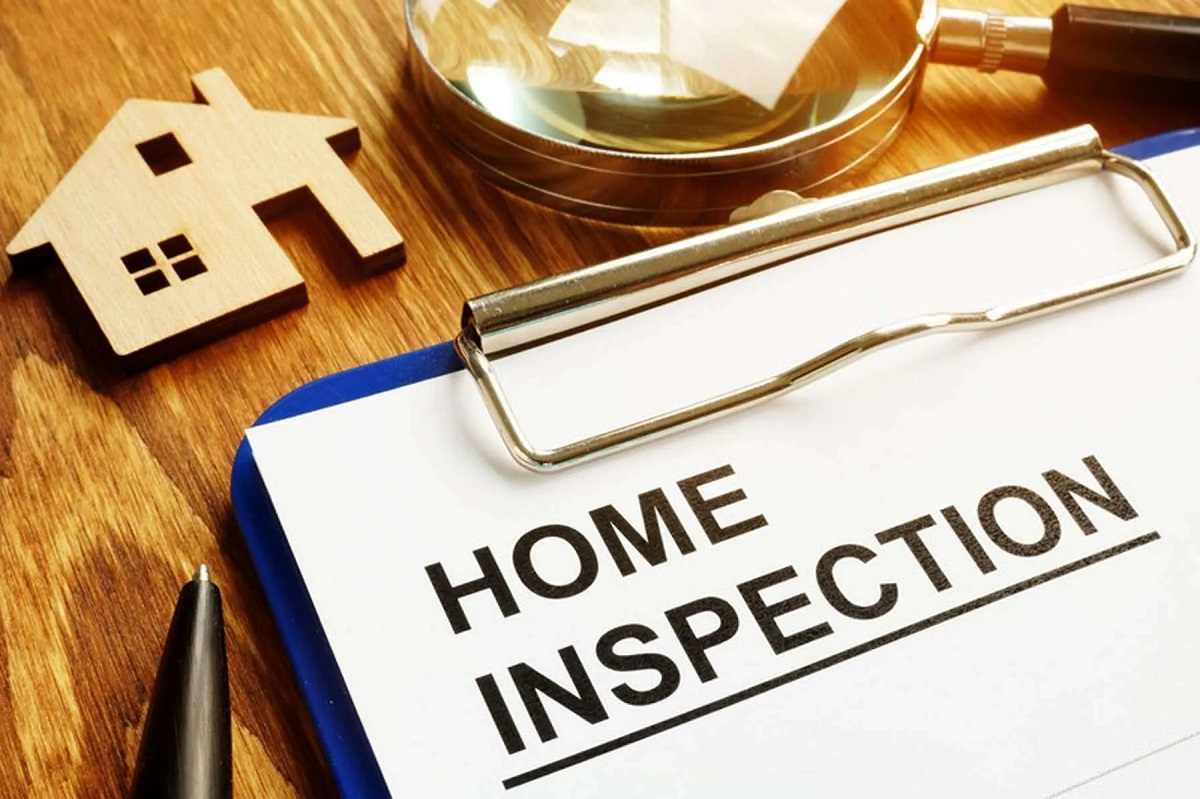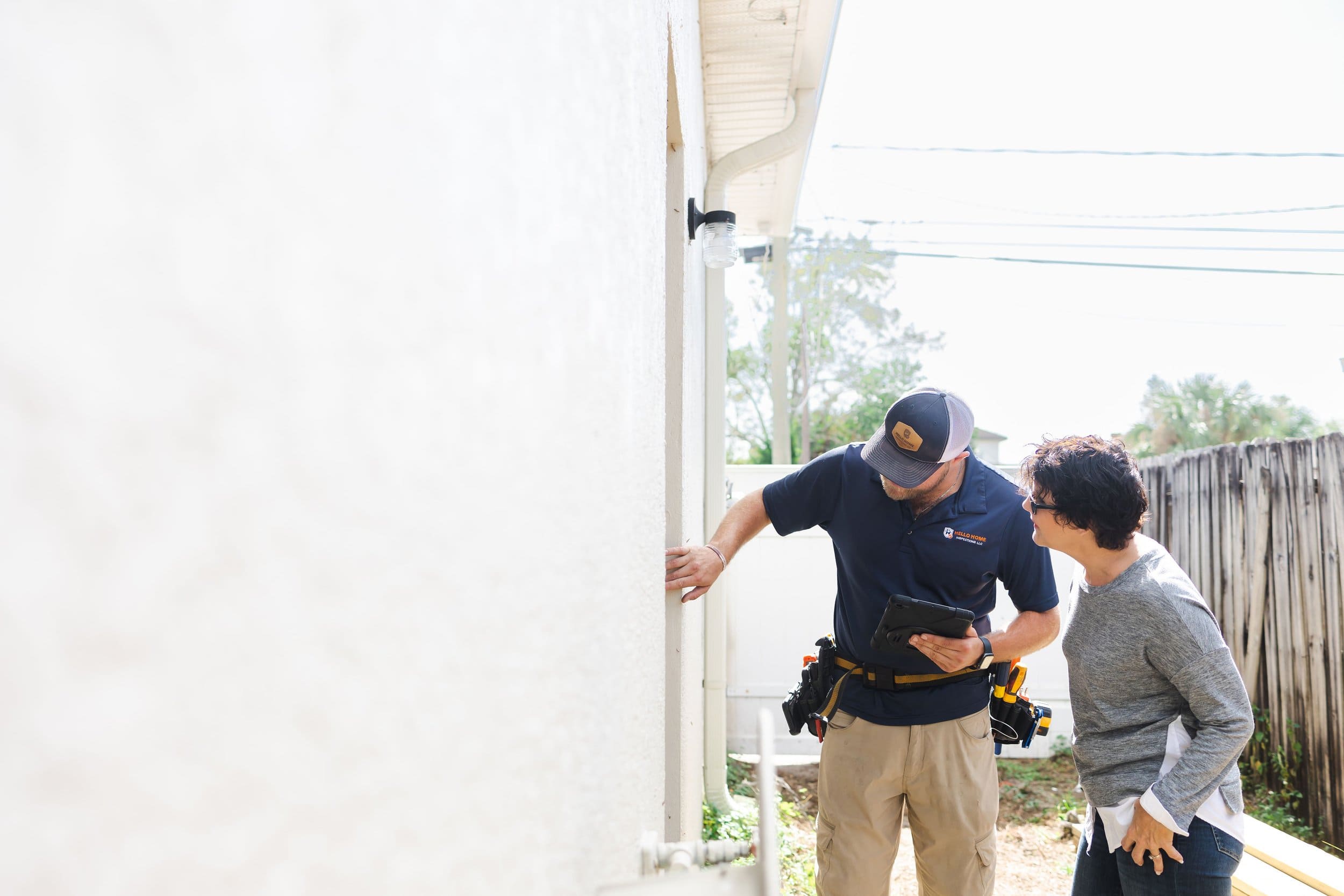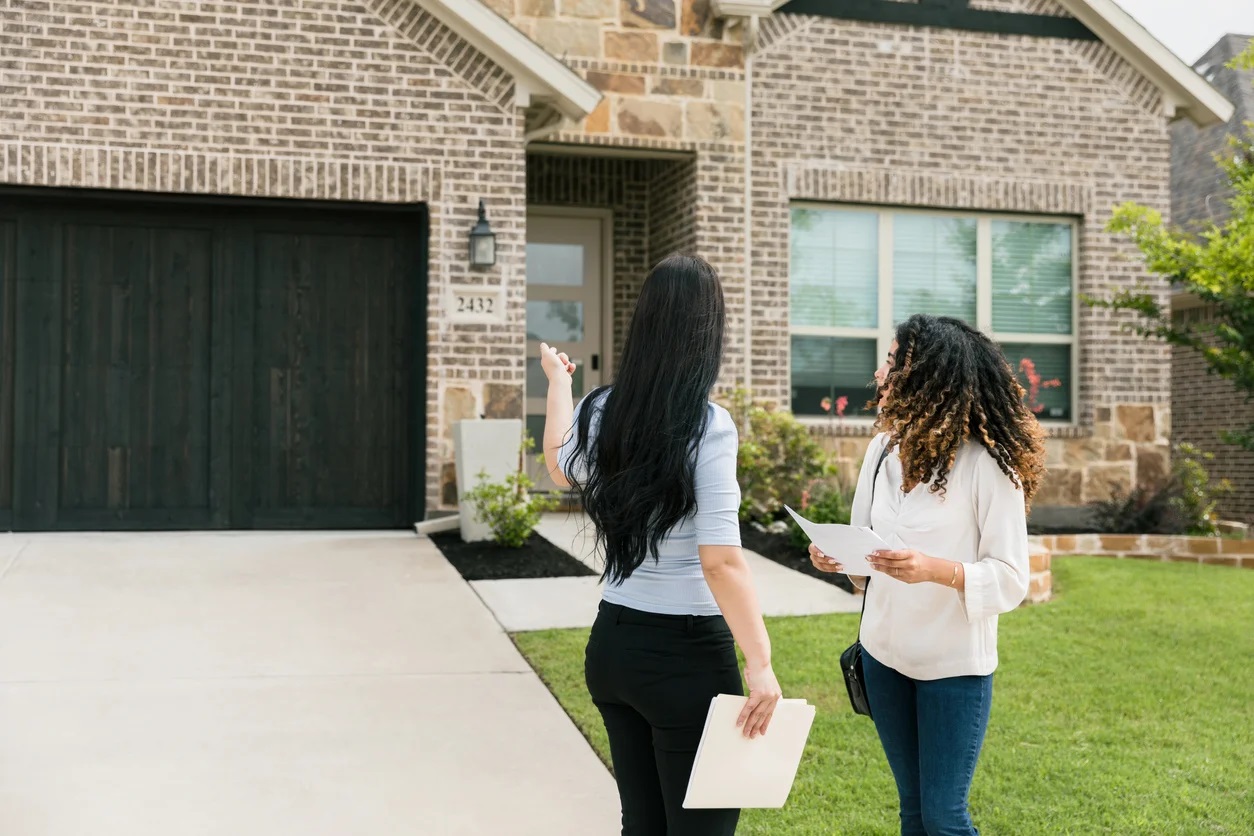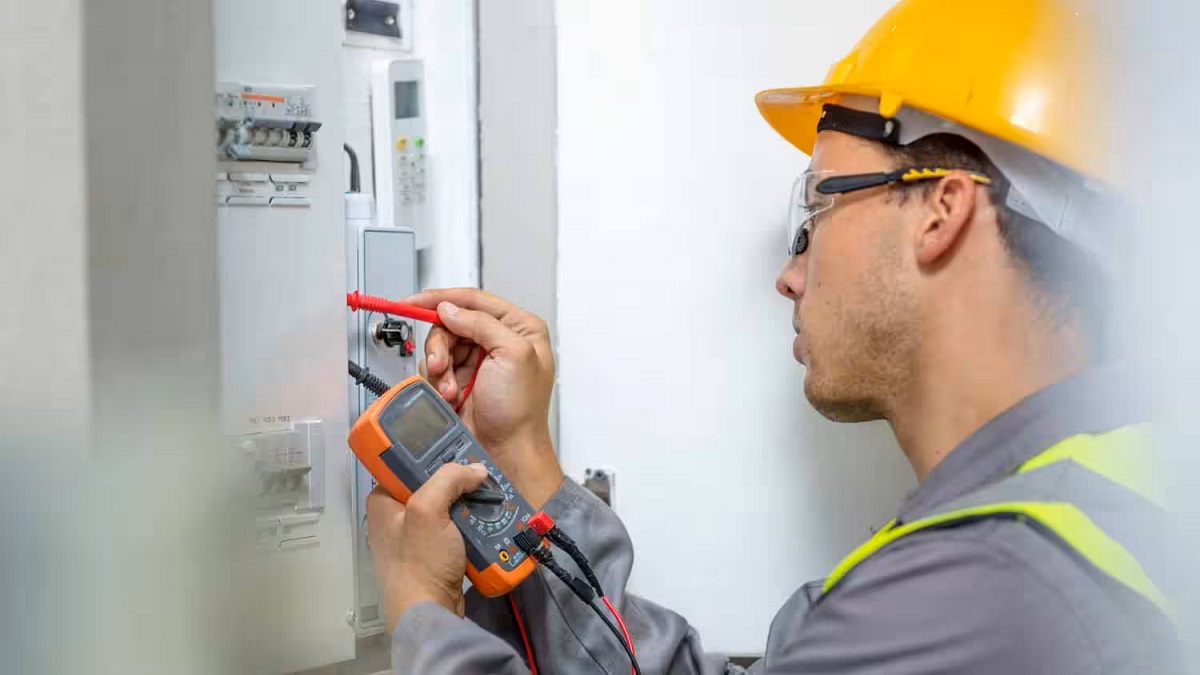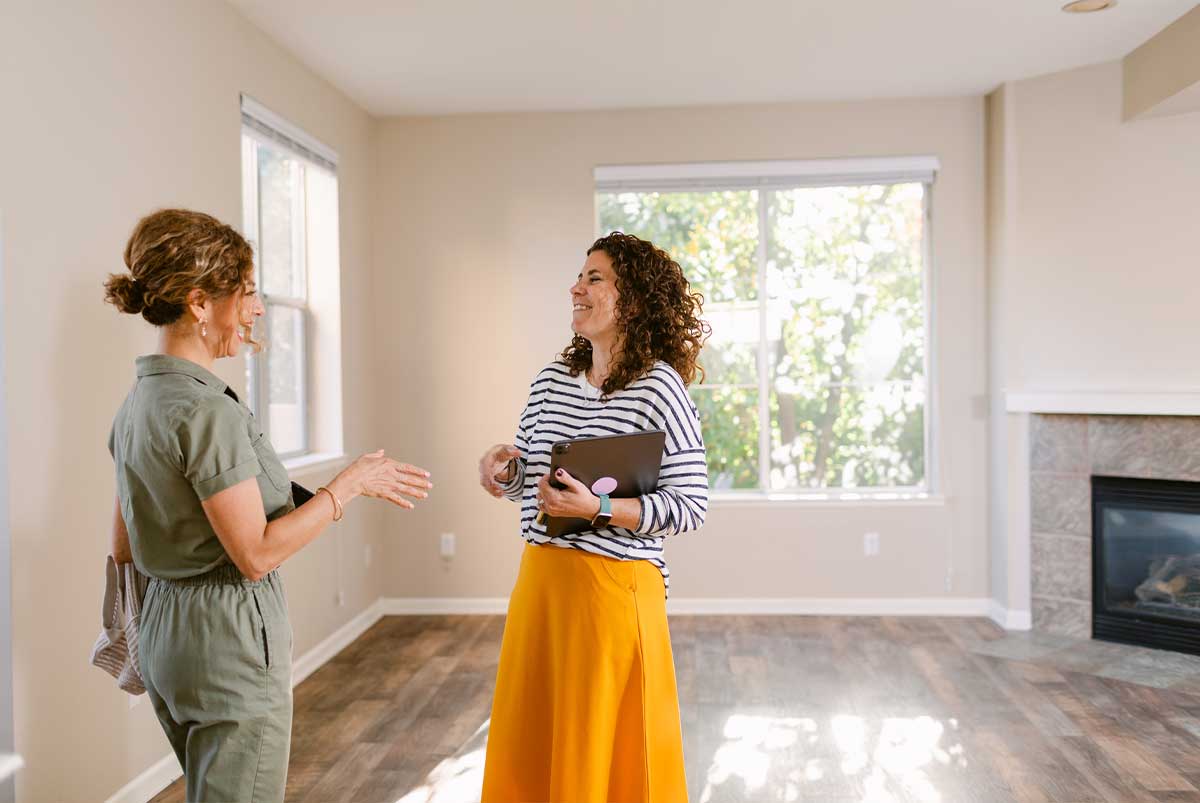Home>Home Maintenance>What Is The Buyer Inspection Process
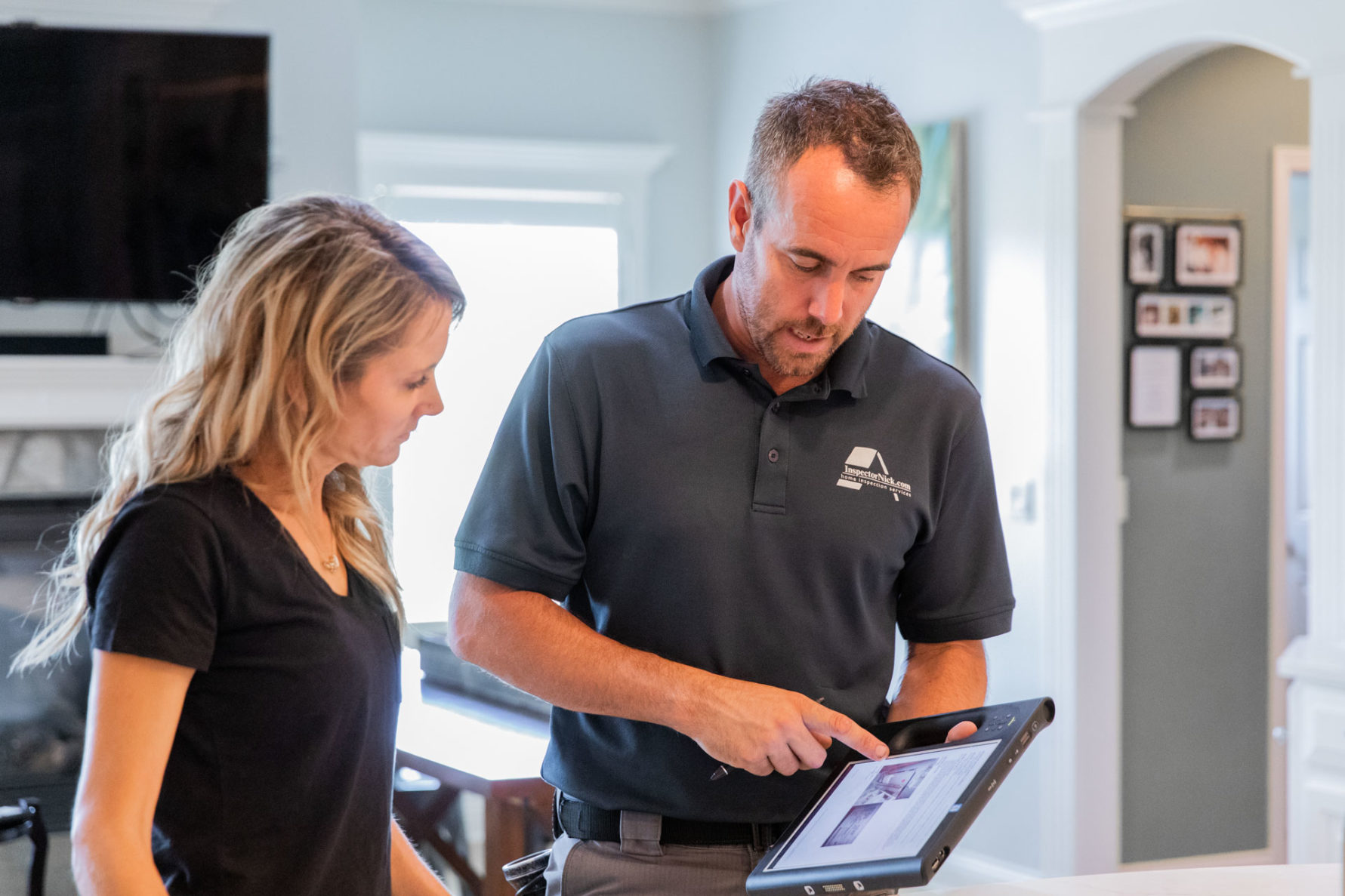

Home Maintenance
What Is The Buyer Inspection Process
Modified: March 6, 2024
Learn what a buyer inspection car does and why it's important for home maintenance. Make informed decisions before purchasing a property.
(Many of the links in this article redirect to a specific reviewed product. Your purchase of these products through affiliate links helps to generate commission for Storables.com, at no extra cost. Learn more)
Introduction
Welcome to the world of home-buying! It’s an exciting journey filled with dreams of finding the perfect place to call your own. However, before you sign on the dotted line and make that commitment, it’s crucial to ensure that the potential home is in good condition and free from any hidden issues.
This is where buyer inspections come into play. A buyer inspection is a thorough examination of a property conducted by a professional home inspector, usually at the request of the buyer. The purpose of this inspection is to identify any existing or potential problems with the property, giving the buyer valuable insights into its condition.
Buyer inspections are an essential step in the home-buying process as they provide you with a comprehensive understanding of the property’s strengths and weaknesses. Armed with this information, you can make an informed decision about whether to move forward with the purchase, negotiate repairs or credits, or even back out of the deal if necessary.
In this article, we’ll delve into the importance of buyer inspections, what you can expect during the inspection process, the areas covered in a buyer inspection, common issues that are often identified, the benefits of hiring a professional inspector, the cost of buyer inspections, and tips for preparing for a buyer inspection.
So, let’s get started on demystifying the world of buyer inspections and discover why they are an indispensable part of the home-buying journey.
Key Takeaways:
- Buyer inspections are like superhero check-ups for homes, uncovering hidden problems and ensuring safety. They help buyers make informed decisions and negotiate repairs, protecting them from costly surprises.
- Hiring a professional for a buyer inspection is like having a home detective. Their expertise, tools, and detailed reports provide peace of mind and negotiation power, making it a valuable investment.
Read more: What Is A Buyer’s Inspection Advisory?
Purpose of Buyer Inspections
The purpose of buyer inspections is to assess the overall condition of a property and identify any existing or potential issues. These inspections provide buyers with valuable information that can impact their decision-making process and help them make informed choices when purchasing a home.
One of the primary purposes of buyer inspections is to uncover any hidden problems that may not be apparent during a casual viewing of the property. While a house may look visually appealing, there could be underlying issues that could lead to significant repair costs and maintenance expenses down the road.
Buyer inspections also serve to protect buyers from making a bad investment. By thoroughly evaluating the property, inspectors can uncover potential deal-breakers such as structural issues, electrical problems, plumbing defects, or the presence of pests, among others. This information is crucial for buyers to determine if the property is worth pursuing or if it’s best to continue their search for a more suitable home.
Moreover, buyer inspections can uncover safety hazards that may put occupants at risk. From faulty wiring to mold infestations and compromised structural integrity, identifying these issues helps buyers prioritize their safety and make necessary repairs before moving in.
Another purpose of buyer inspections is to assist buyers in negotiating the terms of the purchase agreement. If significant issues are discovered during the inspection, buyers may have grounds to request repairs, credits, or a reduction in the asking price. Armed with the inspection report, buyers can enter negotiations with confidence, knowing the specifics of the property’s condition and the potential costs involved.
Ultimately, the purpose of buyer inspections is to provide buyers with peace of mind and confidence in their decision to purchase a property. By understanding the true condition of the home, buyers can make a well-informed choice and avoid potential financial and legal troubles in the future.
Importance of Buyer Inspections
Buyer inspections play a crucial role in the home-buying process, offering numerous benefits and providing buyers with valuable information. Let’s explore the importance of buyer inspections in more detail:
1. Avoiding costly surprises: A buyer inspection can reveal hidden issues that may not be apparent to the untrained eye. By identifying problems early on, buyers can avoid unexpected expenses and potential financial burdens in the future. Knowing the true condition of the property allows buyers to budget for necessary repairs or negotiate with the seller for necessary fixes.
2. Ensuring safety: Buyer inspections can uncover safety hazards such as faulty electrical wiring, gas leaks, or the presence of toxic materials like asbestos or mold. Knowing about these hazards allows buyers to address them before moving in, ensuring the safety and well-being of themselves and their loved ones.
3. Protecting the investment: A buyer inspection allows buyers to make an informed decision about whether or not to proceed with the purchase. If significant issues are identified during the inspection, buyers have the opportunity to renegotiate terms, request repairs, or even withdraw from the deal altogether. This protects buyers from investing in a property that may require significant repairs or be a financial burden in the long run.
4. Gaining negotiation leverage: The inspection report acts as a powerful negotiation tool, providing buyers with valuable information to negotiate a lower price or request repairs or concessions from the seller. Armed with detailed findings from a professional inspector, buyers can enter negotiations with confidence, potentially saving them money in the process.
5. Understanding maintenance needs: A buyer inspection report provides buyers with insights into the maintenance needs of the property. It outlines any immediate repairs or ongoing maintenance that may be required, allowing buyers to plan and budget accordingly. This knowledge helps buyers make informed decisions about their ability to handle the property’s upkeep.
6. Peace of mind: Perhaps one of the most important reasons for buyer inspections is the peace of mind they provide. When buyers have an accurate understanding of the property’s condition, they can move forward with their purchase confidently, knowing they have made an informed decision.
In summary, buyer inspections are essential to protect buyers’ interests, ensure their safety, and provide them with the necessary information to make informed decisions about their investment. By uncovering any hidden issues and providing negotiation leverage, buyer inspections are a vital step in the home-buying process.
What to Expect During a Buyer Inspection
When scheduling a buyer inspection, it’s natural to feel a mix of excitement and apprehension. Understanding what to expect during a buyer inspection can help ease any concerns and ensure a smooth and successful inspection process. Here’s a breakdown of what typically takes place during a buyer inspection:
1. Choosing a qualified inspector: The first step is to find a qualified and experienced home inspector. Look for someone who is licensed, certified, and has a good reputation in the industry. It’s recommended to ask for recommendations from trusted sources and check online reviews before making your selection.
2. Scheduling the inspection: Once you’ve chosen an inspector, you’ll need to schedule the inspection. This is typically done after your offer has been accepted but before the closing of the sale. It’s important to coordinate with the seller to gain access to the property for the inspection.
3. Meeting the inspector: On the day of the inspection, you’ll meet the inspector at the property. It’s advisable to be present during the inspection so that you can ask questions and gain a better understanding of the inspector’s findings firsthand.
4. Thorough examination of the property: The inspector will conduct a comprehensive examination of the property, both inside and outside. They will assess the structural components, roofing, electrical systems, plumbing, HVAC systems, appliances, and more. The duration of the inspection can vary depending on the size and condition of the property.
5. Documentation and report: Throughout the inspection, the home inspector will take notes and document their findings. They will look for any issues, defects, or safety concerns and make note of them in a detailed report. This report will be provided to you after the inspection, typically within a few days.
6. Reviewing the inspection report: Once you receive the inspection report, it’s essential to thoroughly review it. The report will outline any defects or areas of concern discovered during the inspection. It may also include recommendations for repairs or further evaluations by specialized professionals.
7. Following up on necessary actions: Based on the inspection report, you’ll need to decide how to proceed. If significant issues are identified, you may choose to negotiate repairs or credits with the seller, request additional inspections, or even reconsider the purchase. The report provides you with the information needed to make informed decisions.
8. Ongoing support: A reputable home inspector will be available to answer any questions or provide clarification on the report’s contents. They can offer guidance on the severity of issues identified during the inspection and recommend solutions or next steps.
By knowing what to expect during a buyer inspection, you can approach the process with confidence and ensure that you gather the necessary information to make informed decisions about the property you intend to purchase.
Areas Covered in a Buyer Inspection
A comprehensive buyer inspection covers a wide range of areas within a property. The goal is to assess the overall condition and identify any potential issues that may impact the safety, integrity, and value of the home. Here are the key areas typically covered in a buyer inspection:
1. Exterior: The inspector will examine the exterior of the property, including the roof, gutters, downspouts, siding, windows, doors, and any visible structures such as decks or patios. They will look for signs of damage, water intrusion, deteriorating materials, or any hazards that may compromise the exterior integrity of the home.
2. Interior: Inside the property, the inspector will inspect the walls, ceilings, floors, doors, and windows. They will check for any visible signs of water damage, cracks, or structural issues. Additionally, the interior inspection will cover the condition of the electrical systems, plumbing, heating, ventilation, and air conditioning (HVAC) systems, as well as the functionality of appliances.
3. Structural Components: The integrity of the home’s structural components will be assessed, including the foundation, walls, supports, beams, and framing. The inspector will identify any signs of structural issues such as cracks, sagging, or shifting, which could indicate a potential risk to the stability of the property.
4. Roofing: The roof is an essential component of a home, and the inspector will carefully examine it for any signs of damage, leaks, missing shingles, or any other issues that may require immediate attention. This inspection involves accessing the roof, inspecting the flashing, chimneys, vents, and gutters to ensure they are in good condition.
5. Plumbing: The inspector will assess the plumbing system, including pipes, fixtures, faucets, drains, water heaters, and sump pumps. They will look for any leaks, water pressure issues, or signs of plumbing problems that may need repair or replacement.
6. Electrical Systems: The electrical system inspection covers the main electrical panel, wiring, outlets, switches, and circuit breakers. The inspector will check for any outdated or unsafe wiring, insufficient grounding, or overloaded circuits that may pose a safety risk.
7. HVAC Systems: The heating, ventilation, and air conditioning systems are evaluated for functionality, efficiency, and potential maintenance needs. The inspector will examine the HVAC equipment, vents, ductwork, filters, and thermostats to ensure they are in proper working condition.
8. Attic and Crawl Spaces: These areas are inspected for proper insulation, ventilation, and signs of moisture or pest infestations. The inspector will look for any structural issues, inadequate insulation, or potential health and safety concerns.
9. Basement and Foundation: A thorough inspection of the basement and foundation is crucial to identify any signs of water penetration, cracks, or structural defects. The inspector will evaluate the condition of the walls, floors, and any visible signs of moisture or damage.
10. Additional Areas: Depending on the property, the inspection may also include an assessment of the garage, attic, crawl spaces, and any other accessible areas.
Note: It’s important to keep in mind that the areas covered in a buyer inspection may vary depending on the region, type of property, and specific concerns identified during the process. Consulting with the home inspector will give you a clearer understanding of the scope of the inspection for your particular property.
By thoroughly inspecting these areas, you’ll gain a comprehensive understanding of the property’s overall condition and be better equipped to make informed decisions about the purchase.
When inspecting a car as a buyer, be sure to check the exterior for any dents, scratches, or rust. Look under the hood for any leaks or damage, and test drive the car to check for any unusual noises or handling issues.
Common Issues Identified During Buyer Inspections
A buyer inspection serves as a critical step in uncovering any potential issues with a property before finalizing a sale. While each property is unique, there are common issues that frequently arise during buyer inspections. Being aware of these common issues can help buyers prepare for potential challenges and make informed decisions. Here are some of the most frequently identified issues during buyer inspections:
1. Roofing Problems: Roof issues are often discovered during inspections, such as missing or damaged shingles, leaks, or inadequate ventilation. Roofs that are nearing the end of their lifespan may require replacement or extensive repairs, which can be costly.
2. Electrical System Deficiencies: Common electrical issues include outdated wiring, insufficient grounding, overloaded circuits, or the presence of unsafe electrical panels. These concerns can pose safety hazards and may require immediate attention from a licensed electrician.
3. Plumbing Leaks and Problems: Leaky pipes, dripping faucets, clogged drains, or inadequate water pressure are common plumbing issues found during inspections. These problems can lead to water damage, mold growth, and costly repairs if not addressed promptly.
4. HVAC System Malfunctions: Inspectors often identify issues with heating, ventilation, and air conditioning systems. This may include faulty thermostats, defective components, improper maintenance, or inefficient ductwork. Repairs or replacements may be necessary to ensure proper functioning.
5. Structural Integrity Concerns: Structural issues can have a significant impact on a property’s safety and value. These issues range from foundation cracks and settlement to sagging floors, bowing walls, or compromised framing. Professional evaluation and repairs may be needed to address these concerns.
6. Moisture and Water Damage: Water intrusion, excessive moisture, and mold growth can cause significant damage to a property. Inspectors may identify signs of water damage, such as stained walls, warped flooring, mold growth, or musty odors. Addressing these issues is crucial to prevent further damage and ensure a healthy living environment.
7. Insufficient Insulation and Ventilation: Inadequate insulation or poor ventilation can impact energy efficiency and comfort levels within a home. Inspections may reveal insufficient insulation in attics, crawl spaces, or walls, as well as improper ventilation in bathrooms, kitchens, or attics. Proper insulation and ventilation are important for maintaining a comfortable indoor environment.
8. Pest Infestations: Infestations of pests, such as termites, rodents, or insects, can cause significant damage to a property. Inspectors may detect signs of pests, including droppings, damaged wood, or nests. If pests are present, professional extermination and necessary repairs may be required.
9. Safety Hazards: Inspectors prioritize safety and may identify potential hazards during inspections. These could include unsafe stairways, inadequate handrails, trip hazards, faulty smoke detectors, or non-compliant electrical work. Addressing these hazards is essential to ensure the well-being of occupants.
10. Maintenance and General Repairs: Finally, buyer inspections often uncover a variety of general maintenance and repair items. These can range from worn-out or outdated fixtures, inoperable windows or doors, cracked seals, or damaged flooring. While these issues might be relatively minor, they can add up and should be considered when evaluating the overall condition of the property.
It’s important to note that an inspector’s findings may vary depending on the age and condition of the property. It’s always recommended to consult with the inspector to gain a thorough understanding of the identified issues and their potential impact.
By being aware of these common issues, buyers can prepare themselves for potential repairs or negotiations, ensuring a smooth home-buying process and avoiding any surprises down the road.
Benefits of Hiring a Professional for Buyer Inspections
When it comes to buyer inspections, hiring a professional home inspector is strongly recommended. While some buyers may consider conducting inspections themselves, there are several significant benefits to hiring a qualified and experienced professional for this task. Let’s explore the advantages of entrusting your buyer inspection to a professional:
1. Expertise and Knowledge: Professional home inspectors have in-depth knowledge and expertise in evaluating residential properties. They are trained to identify any potential issues and have a keen eye for detail. Their extensive experience allows them to uncover hidden problems that may not be apparent to untrained individuals.
2. Thorough and Comprehensive Inspections: Professional inspectors follow a standardized process and have a systematic approach to inspections. They thoroughly examine all key areas of the property, from the roof to the foundation, ensuring a comprehensive evaluation. Their objective viewpoint allows them to provide an unbiased assessment of the property’s condition.
3. Specialized Tools and Equipment: Professional inspectors have access to specialized tools and equipment that enable them to conduct a more thorough examination. These tools can include moisture meters, thermal imaging cameras, electrical testers, and more. These tools help identify potential issues that may not be visible to the naked eye.
4. Identification of Hidden Issues: Professional inspectors are trained to spot hidden issues that may not be easily noticeable. They can identify early signs of structural problems, water damage, mold growth, or electrical defects, among other issues. By uncovering these hidden issues, they can save buyers from significant financial burdens or safety hazards down the line.
5. Objective and Unbiased Assessments: Professional inspectors provide objective and unbiased assessments of a property’s condition. They don’t have an emotional attachment to the property and are not influenced by personal preferences or motivations. This ensures that buyers receive an impartial evaluation of the property, helping them make well-informed decisions.
6. Written Inspection Reports: Professional inspectors provide detailed written reports summarizing their findings and observations. These reports are typically delivered within a few days after the inspection and provide buyers with a comprehensive overview of the property’s condition. The reports act as valuable references that can be used during negotiations or for future maintenance and repairs.
7. Negotiation Power: The detailed inspection report prepared by a professional inspector can provide buyers with significant negotiation power. If significant issues are discovered during the inspection, buyers can use this information to request repairs, credits, or a reduced purchase price. This can potentially save buyers from financial burdens or help them secure a better deal.
8. Peace of Mind: Hiring a professional for a buyer inspection provides peace of mind. Buyers can have confidence knowing that a qualified expert has thoroughly evaluated the property and provided a detailed assessment of its condition. This information allows buyers to make informed decisions and proceed with their purchase with confidence.
Overall, the benefits of hiring a professional for a buyer inspection cannot be overstated. Their expertise, knowledge, tools, and unbiased assessments greatly contribute to a successful and informed home-buying process. Investing in a professional inspection is a wise decision that can save buyers from future headaches and potential financial burdens.
Cost of Buyer Inspections
The cost of a buyer inspection can vary depending on several factors, such as the size of the property, location, additional services required, and the reputation of the inspector. While the exact cost may vary, it is generally well worth the investment considering the potential savings and peace of mind it provides. Here are some factors to consider when determining the cost of a buyer inspection:
Property Size: The size of the property is a significant factor in determining the cost of a buyer inspection. Larger homes with more square footage generally require more time and effort to inspect thoroughly, which can increase the overall cost of the inspection.
Location: The location of the property can also influence the cost of an inspection. Inspection rates can vary depending on local market conditions, cost of living, and the availability of qualified inspectors in the area.
Additional Services: Additional services, such as radon testing, mold inspections, or termite inspections, may be required based on specific concerns or regional requirements. These additional services will incur extra costs, so it’s important to discuss any specialized inspections with the inspector to understand the associated fees.
Inspector Qualifications: The qualifications, experience, and reputation of the inspector can affect the cost of the inspection. Experienced and highly reputable inspectors may charge higher fees due to their expertise and demand. It’s crucial to choose an inspector with a strong track record and positive reviews, as their thoroughness and attention to detail can provide significant value.
Property Age and Condition: Older properties or properties in poor condition may require more thorough inspections due to potential issues associated with aging infrastructure or neglect. This can result in additional time and effort required, which may increase the cost of the inspection.
Scope of Inspection: The scope of the inspection can vary. While a standard home inspection covers the major components and systems of a property, there may be additional areas or systems that require specialized inspections, such as swimming pools, septic systems, or outbuildings. Each additional inspection will come with its own cost.
It’s important to keep in mind that while the cost of a buyer inspection is an upfront expense, it is a valuable investment in protecting your potential investment. The information provided by a professional inspection can potentially save you from major expenses or unforeseen issues down the road.
While it’s natural to consider cost when budgeting for a home purchase, it’s important not to compromise on the quality or thoroughness of the inspection to save a few dollars. The cost of a professional inspection is small compared to the potential costs of repairing undiscovered issues or purchasing a property with hidden problems.
Ultimately, it’s best to obtain price quotes from qualified inspectors in your area to get an accurate estimate of the cost for your specific property and needs. Remember, the peace of mind and confidence you gain from a thorough buyer inspection are priceless.
Tips for Preparing for a Buyer Inspection
Preparing for a buyer inspection is essential to ensure a smooth and efficient process. By taking a few proactive steps, you can help the inspector access and evaluate your property without any impediments. Here are some tips to help you prepare for a buyer inspection:
1. Clean and Declutter: Before the inspection, make sure your property is tidy and free from clutter. This allows the inspector to easily access key areas, such as electrical panels, crawl spaces, and attics. It also helps create a positive first impression and facilitates a thorough examination of the property.
2. Provide Easy Access: Ensure that all areas of the property, including the interior, exterior, attic, basement, and garage, are easily accessible. Remove any obstacles that may hinder the inspector’s ability to inspect these areas, such as storage boxes, furniture, or personal belongings.
3. Clear Out Utilities: Ensure that all utilities are turned on and accessible, including electricity, water, and gas. This allows the inspector to test electrical outlets, operate appliances, and check plumbing fixtures to evaluate their functionality.
4. Provide Documentation: Compile and provide any relevant documentation related to your property. This may include maintenance records, warranties, renovation permits, and any reports from previous inspections. Sharing this information with the inspector can provide valuable insights and assist in a more accurate evaluation of the property.
5. Make Necessary Repairs: Address any minor repairs or maintenance tasks that you are aware of before the inspection. Fixing leaky faucets, replacing burnt-out light bulbs, and repairing minor damages can give the impression that the property has been well-maintained and cared for.
6. Prepare a List of Concerns: Create a list of questions or concerns that you would like the inspector to address during the inspection. This allows you to communicate your specific areas of interest and ensures that all your queries are addressed during the process.
7. Be Present During the Inspection: Whenever possible, try to be present during the inspection. This allows you to accompany the inspector and gain a better understanding of their findings. You can also ask questions and seek clarification on any issues that arise during the inspection.
8. Take Notes: During the inspection, take notes of any significant findings or recommendations provided by the inspector. This will help you recall important details later when reviewing the inspection report or discussing the property with other parties involved in the purchase process.
9. Dress Appropriately: Wear comfortable clothing and appropriate footwear to ensure that you can move around the property easily during the inspection. This may involve walking on uneven surfaces or climbing into the attic or crawl spaces if needed.
10. Maintain a Positive Attitude: Keep in mind that the purpose of the inspection is to identify any potential issues and ensure that the property is in good condition. Approach the inspection with an open mind and a positive attitude, knowing that any issues that arise can be addressed and resolved.
By following these tips, you can help facilitate a thorough buyer inspection and ensure that all parties involved have a smooth and productive experience. Preparing for the inspection allows you to address any minor concerns beforehand and gain a better understanding of the property’s condition.
Conclusion
A buyer inspection is a critical step in the home-buying process, providing buyers with valuable insights into the condition of a property. By thoroughly evaluating the property’s various components and systems, a professional inspector can identify any hidden issues that may impact safety, maintenance, and overall value. Understanding the purpose and importance of buyer inspections can help buyers make informed decisions and navigate the home-buying process with confidence.
Buyer inspections serve multiple purposes, including uncovering potential problems, ensuring safety, and protecting buyers from making a bad investment. Identifying issues early on allows buyers to negotiate repairs or credits with the seller, or even reconsider the purchase if the problems are too significant.
During a buyer inspection, a professional inspector examines key areas of the property, including the exterior, interior, structural components, roofing, plumbing, electrical systems, HVAC systems, and more. Their expertise, tools, and objective assessments provide buyers with a comprehensive understanding of the property’s condition and help them make informed decisions.
Common issues often identified during buyer inspections include roofing problems, electrical system deficiencies, plumbing leaks, HVAC malfunctions, structural integrity concerns, moisture and water damage, insufficient insulation or ventilation, pest infestations, safety hazards, and general maintenance repairs.
Hiring a professional for a buyer inspection offers multiple benefits, including their expertise, thoroughness, use of specialized tools, objective assessments, written inspection reports, negotiation power, and overall peace of mind. The cost of a buyer inspection varies depending on factors such as property size, location, additional services required, and the inspector’s qualifications.
Preparing for a buyer inspection involves cleaning and decluttering the property, providing easy access, clearing out utilities, providing relevant documentation, making necessary repairs, preparing a list of concerns, being present during the inspection, taking notes, dressing appropriately, and maintaining a positive attitude.
In conclusion, a buyer inspection is an essential step in the home-buying process, providing buyers with valuable information to make informed decisions. By understanding the purpose of buyer inspections, being aware of common issues, and following preparation tips, buyers can navigate the inspection process confidently and ensure they are making a sound investment in their future home.
Frequently Asked Questions about What Is The Buyer Inspection Process
Was this page helpful?
At Storables.com, we guarantee accurate and reliable information. Our content, validated by Expert Board Contributors, is crafted following stringent Editorial Policies. We're committed to providing you with well-researched, expert-backed insights for all your informational needs.


